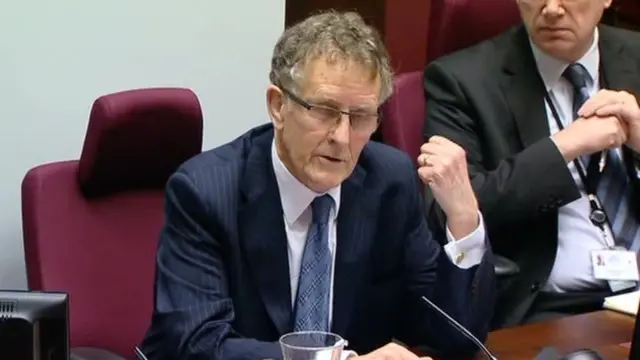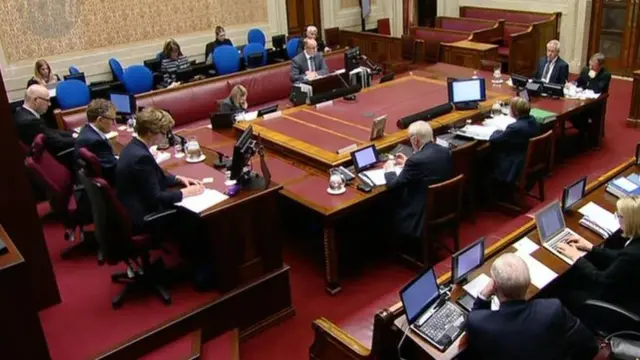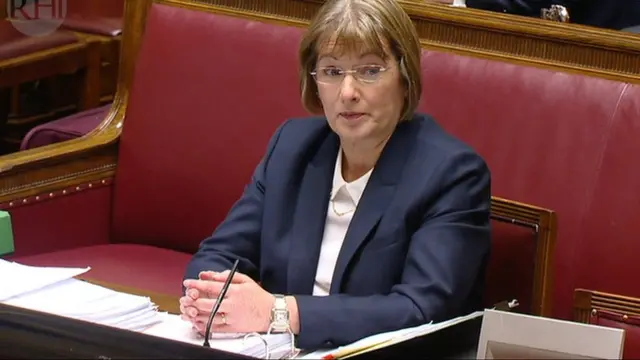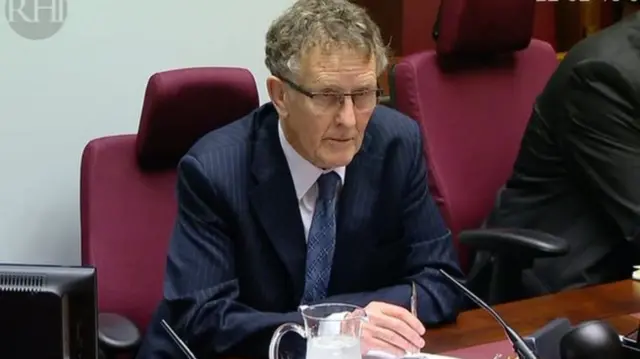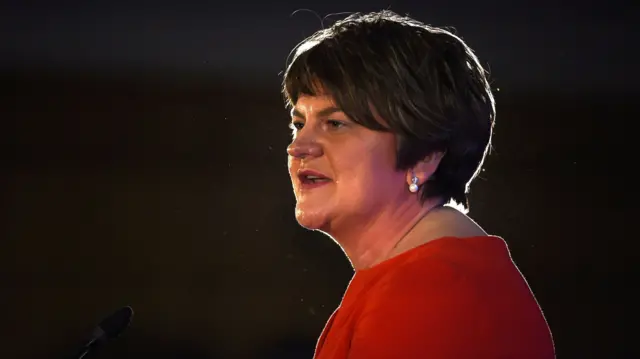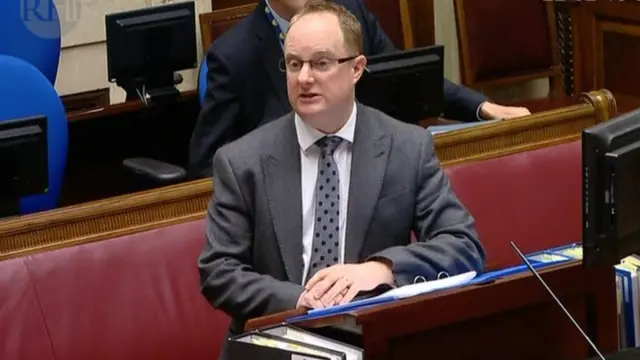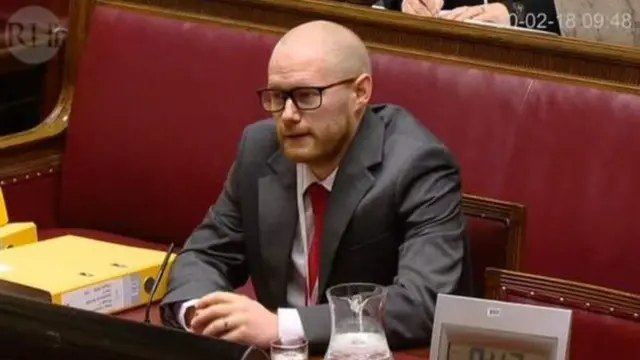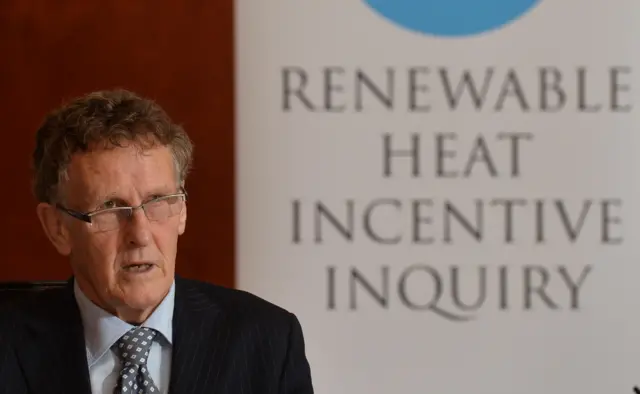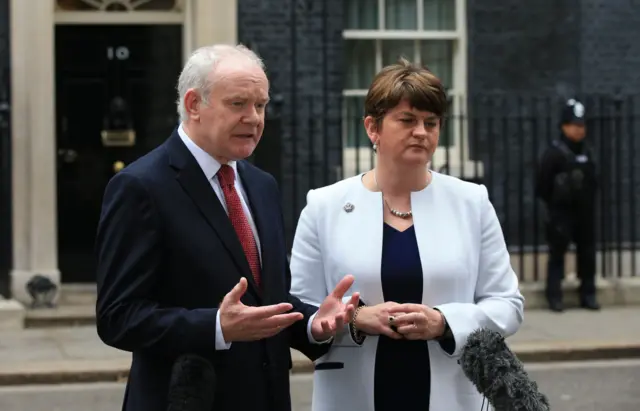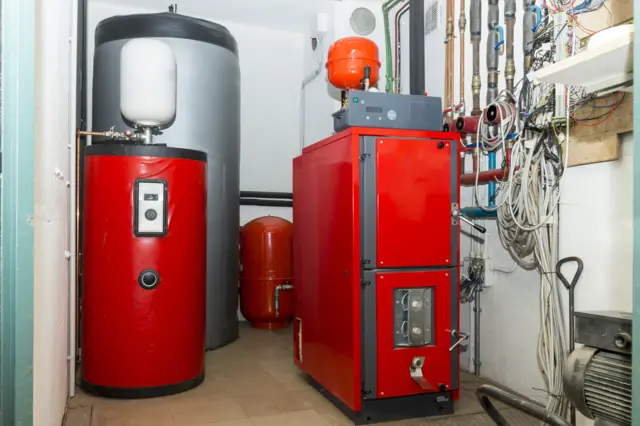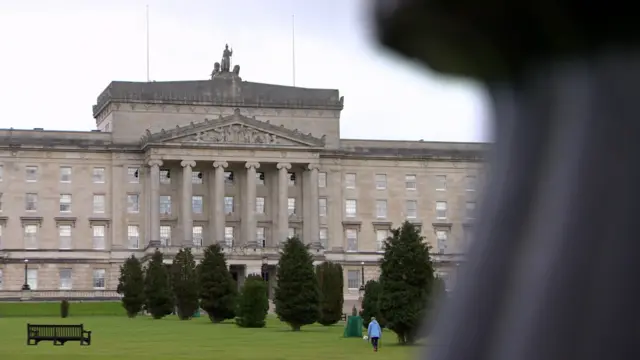'Dispute over admin costs easily resolved'published at 11:49 GMT 22 February 2018
One other issue that cropped in the evidence from another witness was a dispute between Ms Hepper and a DETI colleague about the administration costs of the RHI scheme.
In December 2012, the department was told by Ofgem that the costs would increase from an earlier estimate of about £1.1m over the first four years to £1.8m.
Ms Hepper said at the time that it was just a "refinement" of the original cost estimate and didn't require review from an internal scrutiny committee.
 Image source, Getty Images
Image source, Getty ImagesBut senior DETI finance official Trevor Cooper's view was different - he told the inquiry there was "no doubt" that it should've gone back to the committee he chaired for consideration..
An accommodation was reached that Ms Hepper would then make a submission to Mr Cooper and another committee member, outlining the details of the changes - they confirmed that they were content with them.
She tells the inquiry that the issue was "resolved quite quickly", and the committee members felt it didn't need further consideration from Stormont's finance department.
